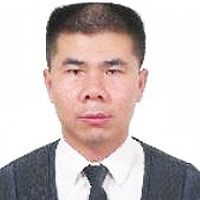Publish with Us
Mathematics & Physics Group
International Journal of Physics Research and Applications- ISSN:2766-2748 IJPRA
Chemistry Group
Biology Group
Annals of Proteomics and Bioinformatics- ISSN:2640-2831 APB
Archives of Biotechnology and Biomedicine- ISSN:2639-6777 ABB
Insights in Biology and Medicine- ISSN:2639-6769 IBM
Journal of Forensic Science and Research- ISSN:2575-0186 JFSR
Journal of Plant Science and Phytopathology- ISSN:2575-0135 JPSP
Pharma Group
Engineering Group
Clinical Group
Medical Group
c3 glomerulopathy
Search by University/Institution
Enter your University/Institution to find colleagues at HSPI.
Ensuring author's satisfaction with
- Friendly and hassle-free publication process
- Less production time of articles
- Constructive peer-review
- Enhancing journal reputation
- Regular feedback system
- Quick response to authors' queries
Most Viewed Keywords
- Lung cancer
- CAE
- Duodenal wound-blunt trauma
- Coronary artery
- Knowledge
- Complete heart block
- IgA nephropathy
- Environmental PM 2.5
- Melanoma
- FGF23
- Aloe vera
- Eleusine indica L. Gaertn.
- Sacroiliac joints, Spondyloarthritis, Injections, Ultrasound-guided, Landmark-guided
- Photonic technology
- Inter-observer variability
- Lip length
- Age estimation
- Arteriovenous fistula
- Triple negative
- Fibrous dysplasia
Search Articles by Country
Get all latest articles in all Heighten Science Publications Inc journals by country.
Testmonials
![]()
Thanks you and your colleague for the great help for our publication. You always provide prompt responses and high quality of service. I am so happy to have you working with me. Thanks again!
Diana (Ding) Dai
![]()
"It was a pleasure to work with the editorial team of the journal on the submission of the manuscript. The team was professional, fast, and to the point".
Moran Sciamama-Saghiv
![]()
Dear colleagues! I am satisfied with our cooperation with you. Your service is at a high level. I hope for a future relationship. Let me know if I can get a paper version of the magazine with my artic...
Aksenov V.V
![]()
We thank to the heighten science family, who speed up the publication of our article and provide every support.
Mehmet Besir
![]()
I would like to mention that I had a wonderful experience working with HSPI. The whole process right from manuscript submission to peer review till the publication of the article was very prompt & eff...
Amarjeet Gambhir
![]()
The service is nice and the time of processing the application is fast.
Long Ching
![]()
I wanna to thank clinical journal of nursing care and practice for its effort to review and publish my manuscript. This is reputable journal. Thank you!
Atsedemariam Andualem
![]()
“It was a delightful experience publishing my manuscript with the Clinical Journal of Obstetrics and Gynecology. They offered me lots of opportunities I never had from most publishing houses and the...
Asafo Jones
![]()
You are such a nice person. Your journal co-operation is very appreciable and motivational.
Archna Dhasmana
![]()
Thank you very much for your support and encouragement. I am truly impressed by your tolerance and support. Thank you very much
Nasrulla Abutaleb
HSPI: We're glad you're here. Please click "create a new Query" if you are a new visitor to our website and need further information from us.
If you are already a member of our network and need to keep track of any developments regarding a question you have already submitted, click "take me to my Query."



